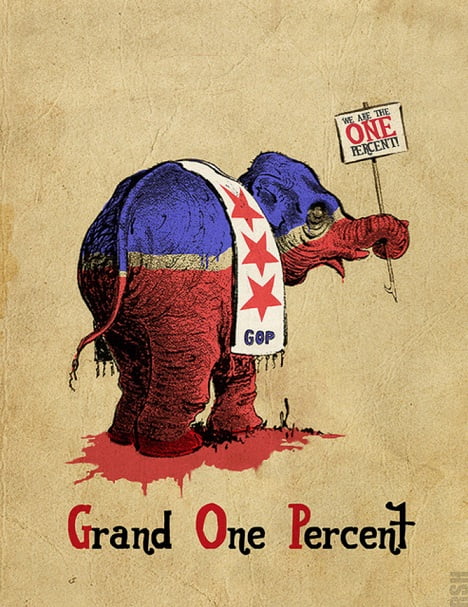[Letter in Crikey, May 11, 2012.]
Gavin R. Putland of Prosper Australia, writes:
Tony Abbott is quite right: the carbon price “amounts to a reverse tariff” in that it taxes the carbon intensity of Australian products but not imported products. I’ve been complaining about reverse tariffs for more than four years. Welcome aboard, Mr Abbott!
What Abbott didn’t say is that the carbon tax, which will raise about $8 billion a year, will be only the fourth-biggest reverse tariff in Australia’s tax system.
The third-biggest, which raised about $18 billion in 2010-11, is payroll tax, which taxes the labour content of Australian products but not imported products. This discriminatory quality strengthens the claim that payroll tax, in so far as it applies to labour embodied in goods, is an unconstitutional duty of excise.
The second-biggest, which raised something like $54 billion in 2010-11, is the payroll tax masquerading as the superannuation guarantee. A federally-mandated, employer-funded 9% super contribution is equivalent to a federally-funded 9% contribution paid for by a 9% federal payroll tax. Doubling the GST, though I don’t recommend it, would be a far more sensible way to pay for super, because the GST is “border-adjusted” (taxing imports while sparing exports) but otherwise affects prices in much the same way as a payroll tax.
State payroll taxes and the federal super guarantee are patently worse than the carbon tax, not only because they raise more revenue, but also because they tax something desirable (jobs) rather than something undesirable (pollution).
But the biggest, baddest reverse tariff, which raised about $200 billion in 2010-11, is income tax in all its forms. Australia’s income tax penalizes income earned in production of Australian products but spares income earned in production of imported products. In other words, it amounts to a value-added tax without border-adjustment. If it were called a “VAT” or “GST” without border-adjustment, it would not pass the laugh test in any developed country. But separate the value added by labour (wages) from the value added by capital (profit), tax them separately, shoot them full of loopholes, re-brand the whole sordid mess as “income tax”, and you get the mainstay of the tax system in almost every developed country. It’s one of the great con-jobs of the last hundred years.
Hence I am pleased that the carbon price will at least raise the personal income-tax threshold, allowing employers to offer useful amounts of part-time work without having to withhold personal income tax (or any part of the low-income tax offset).
I confess that I will be more pleased if the carbon price is converted to a simple tax before it creates any private property rights. We discourage smoking and drinking by taxing tobacco and liquor, and I fail to see why pollution should be treated any differently. We didn’t create tradable rights to smoke or drink, and I fail to see why we should create tradable rights to pollute.
But those who are concerned about reverse tariffs should have bigger fish to fry.









